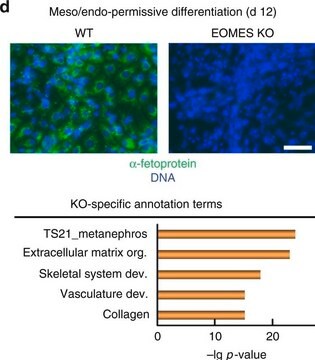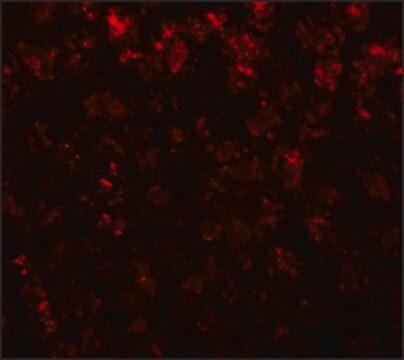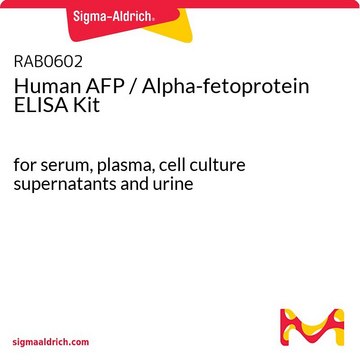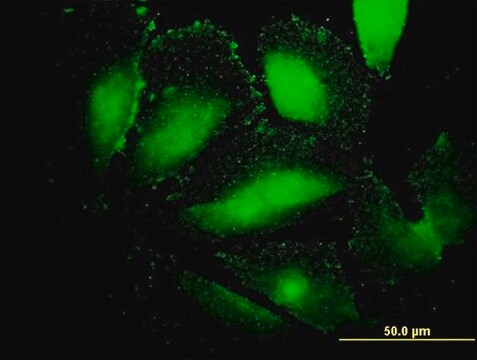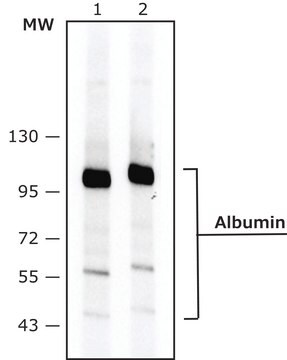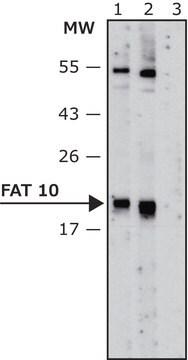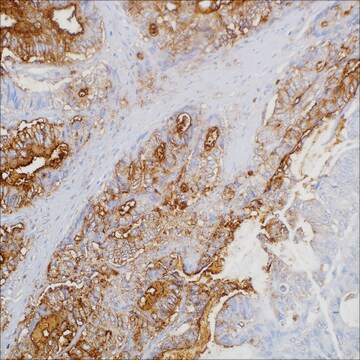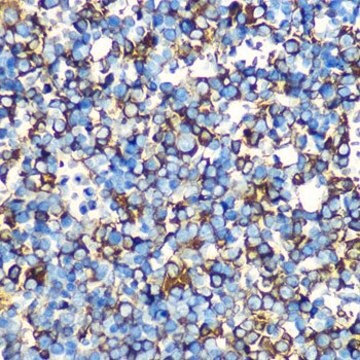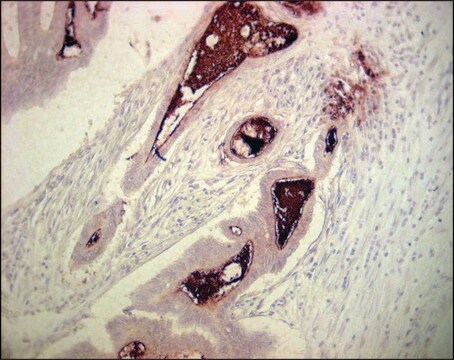SAB4200746
Anti-α-Fetoprotein (AFP) antibody, Mouse monoclonal
clone C3, purified from hybridoma cell culture
Synonym(s):
Anti-AFP, Anti-Alpha-1-fetoprotein, Anti-Alpha-fetoglobulin
About This Item
Recommended Products
biological source
mouse
Quality Level
conjugate
unconjugated
antibody form
purified from hybridoma cell culture
antibody product type
primary antibodies
clone
C3, monoclonal
form
buffered aqueous solution
mol wt
~74 kDa
species reactivity
human, canine, porcine
concentration
~1.0 mg/mL
technique(s)
ELISA: suitable
dot blot: suitable
immunoblotting: 2-4 μg/mL using liver hepatocellular carcinoma HepG2 cell line extract
immunofluorescence: suitable
immunohistochemistry: 2-4 μg/mL using formalin-fixed, paraffin-embedded human fetal liver sections
isotype
IgG2a
UniProt accession no.
shipped in
dry ice
storage temp.
−20°C
target post-translational modification
unmodified
Gene Information
human ... AFP(174)
General description
Immunogen
Biochem/physiol Actions
Physical form
Storage and Stability
Other Notes
Not finding the right product?
Try our Product Selector Tool.
Storage Class Code
10 - Combustible liquids
Flash Point(F)
Not applicable
Flash Point(C)
Not applicable
Choose from one of the most recent versions:
Certificates of Analysis (COA)
Don't see the Right Version?
If you require a particular version, you can look up a specific certificate by the Lot or Batch number.
Already Own This Product?
Find documentation for the products that you have recently purchased in the Document Library.
Customers Also Viewed
Our team of scientists has experience in all areas of research including Life Science, Material Science, Chemical Synthesis, Chromatography, Analytical and many others.
Contact Technical Service